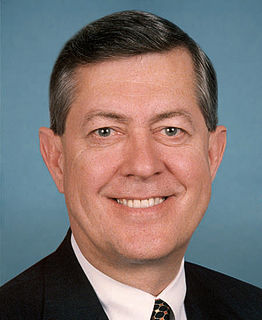A Quote by Scott Gottlieb
The key to the generic-drug economic model is to keep entry prices low enough to attract multiple competitors.
Related Quotes
I'll tell you what I'd do if it were up to me: I would establish a strictly controlled distribution network through which I would make most drugs, excluding the most dangerous ones like crack, legally available. Initially I would keep the prices low enough to destroy the drug trade. Once that objective was attained I would keep raising the prices, very much like the excise duty on cigarettes, but I would make an exception for registered addicts in order to discourage crime. I would use a portion of the income for prevention and treatment. And I would foster social opprobrium of drug use.
It doesn't have the ability to think rationally this economic model. It thinks like a drug addict: 'Where can I get my next fix?' It doesn't learn wisely. Any kind of measure of natural wisdom would be: you make a mistake, you correct it the next time around. But a drug addict feels terrible... and then says: 'I want more'. Unfortunately we have an economic model that thinks like a crack addict.
Stock prices are likely to be among the prices that are relatively vulnerable to purely social movements because there is no accepted theory by which to understand the worth of stocks....investors have no model or at best a very incomplete model of behavior of prices, dividend, or earnings, of speculative assets.
In industries where a lot of competitors are selling the same product - mangoes, gasoline, DVD players - price is the easiest way to distinguish yourself. The hope is that if you cut prices enough you can increase your market share, and even your profits. But this works only if your competitors won't, or can't, follow suit.
The problem with Wal-Mart is that it's a business model premised on offering the customer low prices at any cost - any cost to society, any cost to workers. They've got a lot of competition and have influenced people to follow their model through simply providing a model that is so successful at making profits.
Under the antitrust laws, a man becomes a criminal from the moment he goes into business, no matter what he does. If he complies with one of these laws, he faces criminal prosecution under several others. For instance, if he charges prices which some bureaucrats judge as too high, he can be prosecuted for monopoly or for a successful 'intent to monopolize'; if he charges prices lower than those of his competitors, he can be prosecuted for 'unfair competition' or 'restraint of trade'; and if he charges the same prices as his competitors, he can be prosecuted for 'collusion' or 'conspiracy.'
High prices can be the result of speculation, and maybe plunging prices can be attributed to the end of speculation, but low prices over time aren't caused by speculation. That's oversupply, mainly by Saudi Arabia flooding the market with low-priced oil to discourage rival oil producers, whether it's Russian oil or American fracking.


































